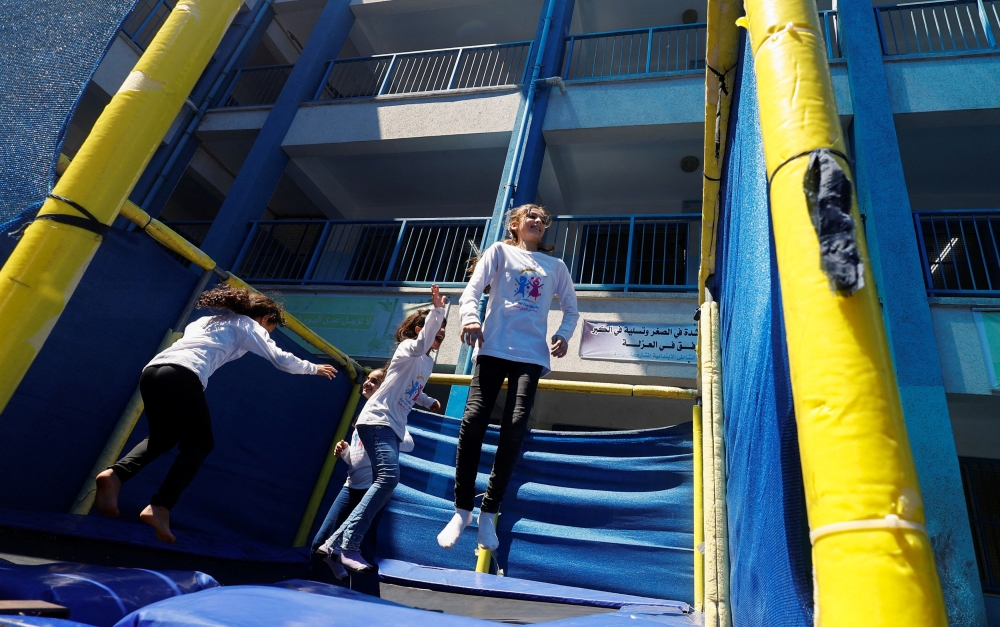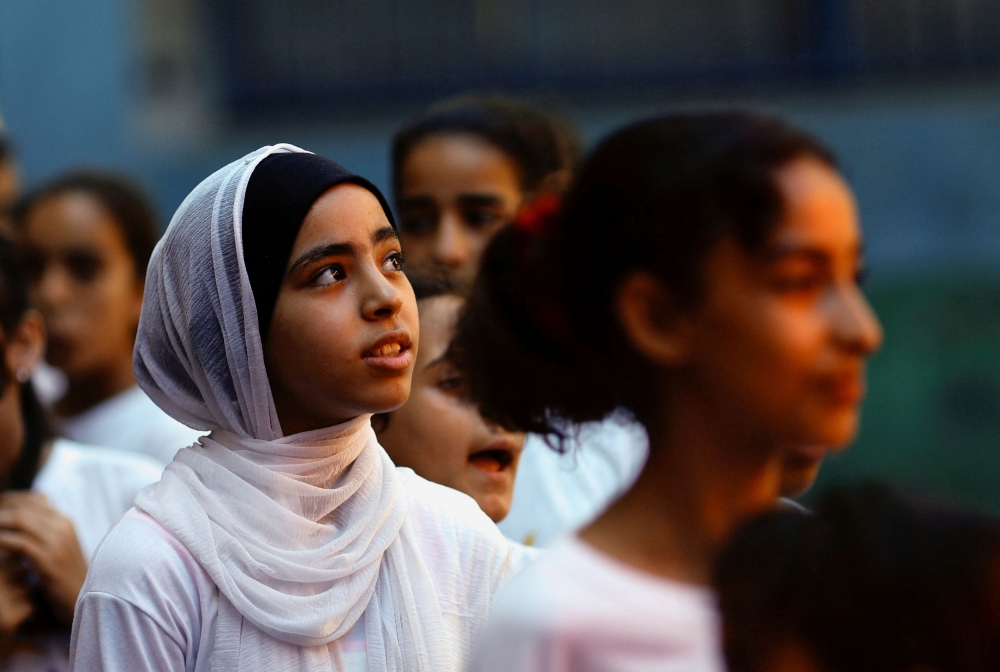GAZA, July 12 — More than 130,000 Palestinian boys and girls in Gaza have joined summer camps run by the United Nations to give them a break from the stresses of living in a strip of land that is under an economic blockade and often embroiled in conflict with Israel.
The Palestine children, including those with disabilities, will over four weeks participate in a series of activities including greening, recycling, sports, drawing, handicrafts, and language learning, the agency said.
The United Nations Relief and Works Agency for Palestine Refugees in the Near East (UNRWA) said a recent agency study found that 38 per cent of children in Gaza showed symptoms of functional impairment affecting their daily lives.
UNRWA runs 284 schools in Gaza, serving at least 290,000 students.
“The most important thing is 130,000 children get the opportunity just to be kids despite of the economic situation, despite the ongoing conflict, they can come to summer weeks of UNRWA and just be children,” said Thomas White, the Director of UNRWA Affairs in Gaza.

Palestinians have lived through several wars with Israel since 2008, including five days of fighting in May, which have made healing almost impossible as the causes remain unchanged, say local and international experts.
They put the number of children needing mental health help at nearly a quarter of the enclave’s 2.3 million population that lives under a crippling blockade enforced by Israel and Egypt, which both control and restrict the Gaza Strip’s borders.
“I came here to entertain myself away from the things I had been subject to such as wars and conflicts that I witnessed. I may not be like other children (of the world) but I am trying to stay positive no matter what happens,” 13-year-old Joanna El-Halabi told Reuters at one school in Jabalia refugee camp in the northern Gaza Strip.
The activity creates around 3,000 short-term jobs for Gaza youth, UNRWA said.
Established in 1949 following the first Arab-Israeli war, the agency provides public services including schools, primary healthcare, and humanitarian aid in Gaza, the West Bank, Jordan, Syria, and Lebanon. — Reuters























